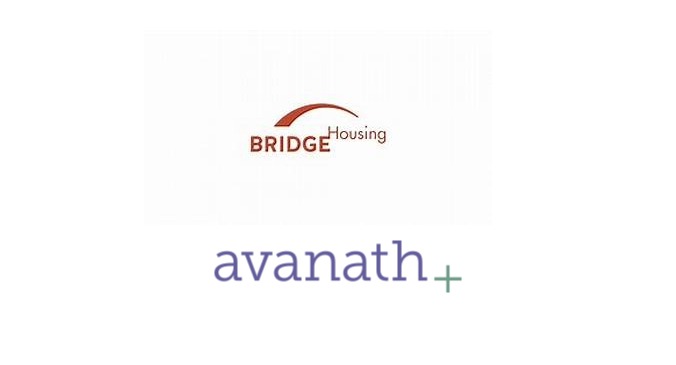
The American dream of homeownership has become inaccessible for many, thanks to historically high home prices that are keeping prospective buyers in the rental market.
But increased demand for rental housing—along with dwindling supply—continues to push rents upward even as many people still struggle to catch up on lease payments. According to U.S. Census Bureau data from July 16, 11.5 million adult renters are behind on their rent.
High rents have resulted in an increase in roommate arrangements and have forced many millennials to move back in with their parents or remain in their parents’ basements well into their 20s and early 30s.
Adding to the upfront costs of securing a lease are moving expenses, furnishings, utilities, pet and parking fees and the traditional security deposit designed to protect landlords from non-payment of rent or damage to their property. Renters are required to pay the security deposit, which varies by state and property, before they can move in.
These security deposits are putting the squeeze on low- and middle-income renters who can barely afford to put together the costs associated with renting and moving into an apartment.
To ease this burden, some credit unions are offering their members low-interest moving loans and some apartment management companies are even allowing renters to spread the payment of the security deposit across monthly installments.
In response to the dearth of affordable housing and the national rise in homelessness, lawmakers in 41 states have passed legislation requiring landlords to offer renters alternatives to the traditional lump-sum security deposit.
Enter: the alternatives
Over the past seven years, a number of companies have entered the multifamily market with alternative security deposit products ranging from damage and lease insurance to lease guarantees and surety bonds that help renters offset the costs of move-in.
RealPage, which offers a number of SaaS (Software as a Service) products to the multifamily industry, entered the renters’ insurance space in 2018 with the acquisition of surety bond company DepositIQ.
Launched between 2014 and 2015, Jetty Insurance Agency, Rhino and LeaseLock offer insurance products that allow renters to pay a nonrefundable monthly fee in lieu of the upfront security deposit that insures the property owner against damages or failure to pay up to a certain amount.
“Lease insurance is designed to mitigate the risk of accepting renters, including those with less than stellar credit,” said Suzette LeSane, VP of product management at New York-based Assurant, Inc., a global provider of risk management products in 21 countries.
Assurant provides the multifamily market with two kinds of surety bonds, SureDeposit and FlexDeposit.
Surety bonds are three-party agreements between the renter, the property owner and the surety company that ensures a contractual obligation is met. In this case, ensuring to the property owner that if the renter defaults on the lease agreement or damages the property, the bonding agent will cover the costs and then recoup them from the renter up to the cost of the bond coverage amount.
“Both of our surety bonds can be applied to the renter who was approved with conditions, but also to someone who was accepted for move-in with no conditions. But they are completely different products,” said LeSane.
SureDeposit is the company’s first product for the multifamily space. It is a pooled product, meaning that when the renter is approved he or she can choose to complete a bond application and pay a nonrefundable fee. The fee is derived from a percentage of the monthly cost of the lease, which is then added to a pool of deposits from other renters at the community who also opted to move in using the surety bond.
That pool is kept in reserve for the community. If renters cause damage or fail to pay rents in amounts that exceed the reserves, the owner takes a loss, explained LeSane.
Pooled surety bonds have been around for decades, but many landlords balk at accepting them because of the associated risk of an unfunded or underfunded pool.
FlexDeposit also is a surety bond, but with this product, the owner no longer takes on the risk associated with a pool. When the renter signs up for FlexDeposit, he or she agrees to pay damages or unpaid rent to Assurant. In the event of damages or unpaid rent, Assurant pays out the loss and uses Assurant Recovery Solutions, its own collection agency, to recover from the renter.
“The cost to the renter of these security deposit alternatives vary based on the structure of the product. Some costs are based on credit score, some by length of the lease,” said LeSane.
“Our two-year FlexDeposit bond is going to run someone with the fairly decent credit score anywhere between $270 and $280, which is a practical solution if you’re looking at paying $4,000 just to move in,” she said.

Traditional deposit challenge
There is a subset of the population that will still opt to pay the security deposit because when they move out they want to get that money back, said LeSane.
One of the problems with security deposits is that they only protect the property owner up to the amount of the deposit. If the renter damages the apartment or fails to pay rent, the owner is left to pursue the debt in-house and take legal measures or hire a collection agency to go after the former resident to recoup the loss.
Moreover, there are administrative issues associated with managing security deposits. These include collecting, storing and investing the funds, realizing the gains from the funds and following and keeping up with the jurisdictional rules on returning them when the renter is ready to move out and wants the deposit back.
Assurant also offers a security deposit management product called Deposify through a partnership with the company of the same name. Deposify simplifies those processes and mitigates the risks associated with accepting lump-sum deposits. Deposify’s technology platform also helps property managers stay compliant with each state’s security deposit laws and regulations by creating interest-bearing joint trust accounts.
“While large property management companies with hundreds of thousands of units under management may have entire in-house operations to manage this process, most small and mid-market companies find it difficult to allocate the time and resources to take on these tasks themselves and go to a solution like Deposify to get the assets managed in a clean way,” said LeSane.
There’s also the matter of keeping up with changing laws in various jurisdictions, and its assocative risk.
Assurant has rolled out Deposify to multifamily managers nationwide.
The flexibility game changer
LeSane has seen security deposit alternatives evolve over the past five years into options for all renters, not just those who cannot afford to pay first and last month’s rent.
“Our FlexDeposit product has become a flexible, cash management tool that renters can opt into,” she said.
Ardmore Residential, a multifamily development, investment and management company with six properties in the Southeast, which previously required no security deposits as a concession to attract more residents, contracted with Assurant several months ago and moved to a security deposit system.
“One of my objectives was to establish a deposit structure. We wanted to be able to give renters the option of paying the standard refundable deposit. That’s what Deposify does for us.”
“For people who may not be able to qualify because of a lower credit score or come up with the funds to pay first and last, we wanted to offer a bond option that would allow us to extend residency to these people for a fraction of the cost of the security deposit and still cover us in the case of damages. The Deposify and FlexDeposit products work well with our communities.” said Ardmore Residential Chief Operating Officer Lisa Russell.
“With sporadic success, our only option before partnering with Assurant was to use internal and external collection methods to recover bad debt. We relied solely on the strength of a prospect’s credit score and application data,” said Ashanti Smith-Watson, director of Training and Compliance for Ardmore.
“While Ardmore implemented the deposit structure only a few months ago, we are thrilled with this partnership. Our executive leadership gave the decision to connect with Assurant after thoughtful consideration and extensive research,” said Smith-Watson.
“It was a strategic move to make sure we had plenty of options The proof is in the pudding. We are even now beginning to see some of the checks for damages come in. And residents love that the choice is in their hands to pay a refundable or non-refundable deposit,” Russell said.
Integration matters
“The multifamily industry is much like the mortgage industry, where there are all these large property management software systems that handle every aspect of the business. We need those systems to talk to our product, so the integration to the property management software is essential to keep the data flowing,” said Russell.
To accomplish adoption of the FlexDeposit and Deposify products, some training of the Ardmore staff was required.
“Assurant has an in-depth training program to help navigate teams through their products. They diligently trained our teams in a virtual environment on all aspects, from marketing deposit alternatives to administrative processes.”
“Though we work in a portal outside of Yardi, we are close to beta testing integration. We are excited that soon our team members won’t have to take that additional step outside of the software system they use daily,” said Smith-Watson.
Moving forward, LeSane believes the multifamily space will continue to be ripe for innovation.
“We plan to grow our FlexDeposit footprint by refining the product and improving our front and back end,” she said.
Landlords only make money by renting their units. Today, there are a number of alternatives to the traditional security deposit that they can use to expand their pool of qualified renters, while still protecting themselves from financial loss. Offering one or more of these alternatives to prospective renters could increase their properties’ occupancy and enhance their bottom line.
Author Wendy Broffman















